We helped a CBD oils shop convert into a one-stop-shop sleep marketplace with a personalised user experience
As part of my Master degree in Digital Project Direction & UX Management in Gobelins, I worked on a group project for 3 months. We were a team of 4 who decided to help the French-American entrepreneur, Trisha MITRA.
In this project, I was responsible for Project Management and Strategy.
Our team
The team was composed of 4 complementary profiles (including myself) :
- Anaïs Makhloufi, UX/UI Designer at EPITA
- Andrianina Rakotomavo, UX - CRO at Groupe Beaumanoir
- Justine Santelli, UX & Product Designer at Bel
- Lenny Thieuleux, E-Commerce Manager D2C at L'Oréal Groupe for NYX Professional Makeup
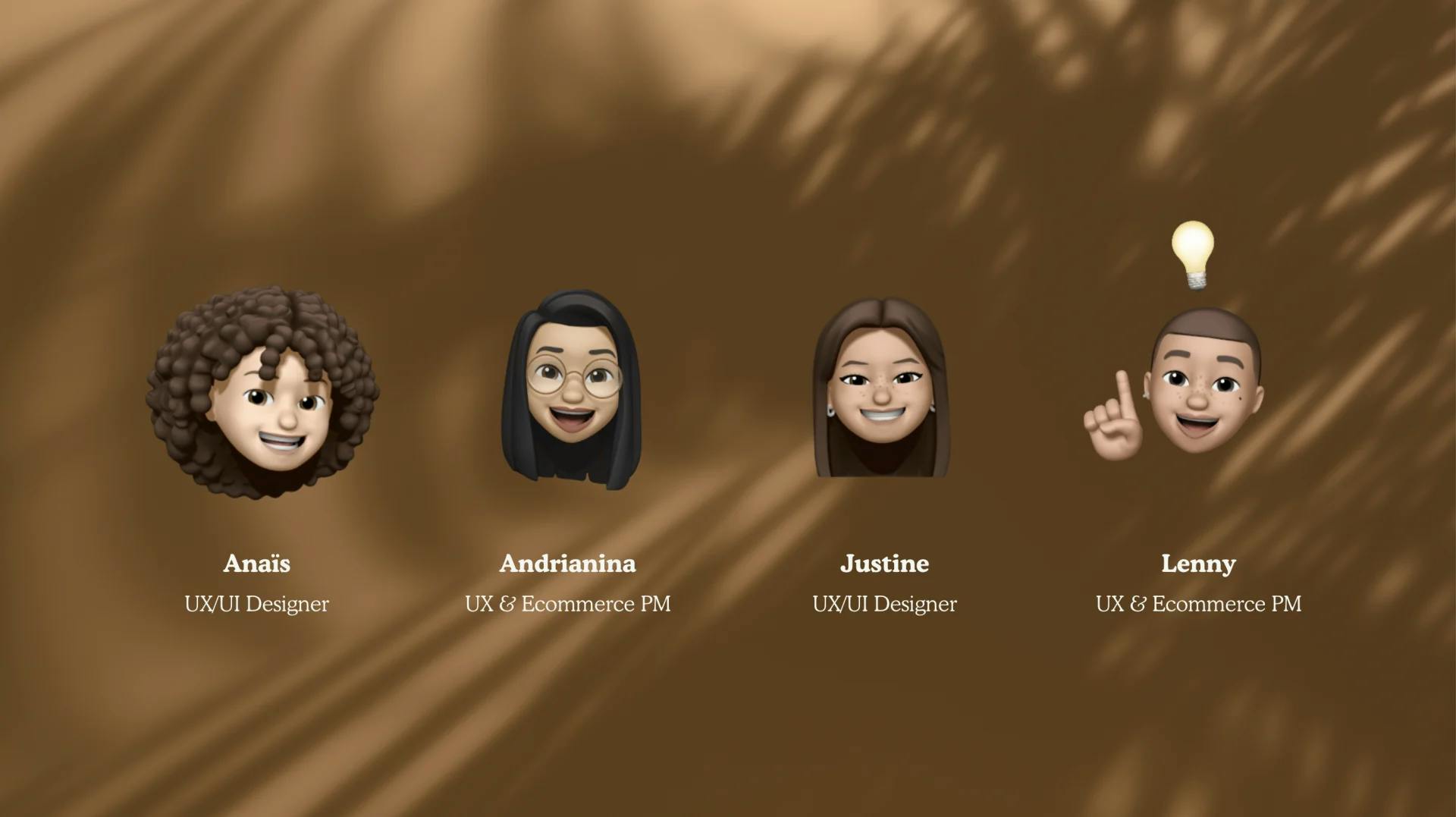
The context
Revery is a brand of cannabidiol (CBD) oils founded by Trisha MITRA in December 2021. When she launched her line of products, consisting of a CBD oil concentrated at 6% and another at 12%, Trisha had the ambition to educate and support consumers in their discovery of CBD.
In April 2022, thanks to feedback from her first clients, Trisha learned that the primary use case for her oils is to help improve their sleep. Revery oils have become the perfect addition to clients' bedtime routines.
Based on this observation and to develop her business, Trisha then planned to transform her e-commerce site selling CBD oils to expand her market and protect herself from an ecosystem that is still too immature - and changing - in France and Europe.
---
What is cannabidiol (CBD)?
Cannabidiol is a substance, naturally present in the cannabis (or hemp) plant. Over-the-counter CBD is widely used as a way to combat insomnia, stress, and even anxiety. CBD (cannabidiol) does not have the same “recreational” properties as TCH. Moreover, CBD is not classified as a narcotic or psychotropic.
(source: ameli.fr)
The process
Throughout our project, we naturally followed the double-diamond process.
As a result, we were able to explore the subject in order to develop our expertise. This first phase (first diamond) served us to produce a reflection and solutions adapted to the needs of our sponsor, its customers, and the challenges of the market.
When we needed to pool our ideas and decide which avenue(s) to pursue, we took advantage of Design Thinking and various ideation, card sorting, and voting workshops.
These workshops, in addition to being fun, allowed us to come together during pivotal stages of the project and to ensure that all the team members would be able to continue their progress in the same direction.
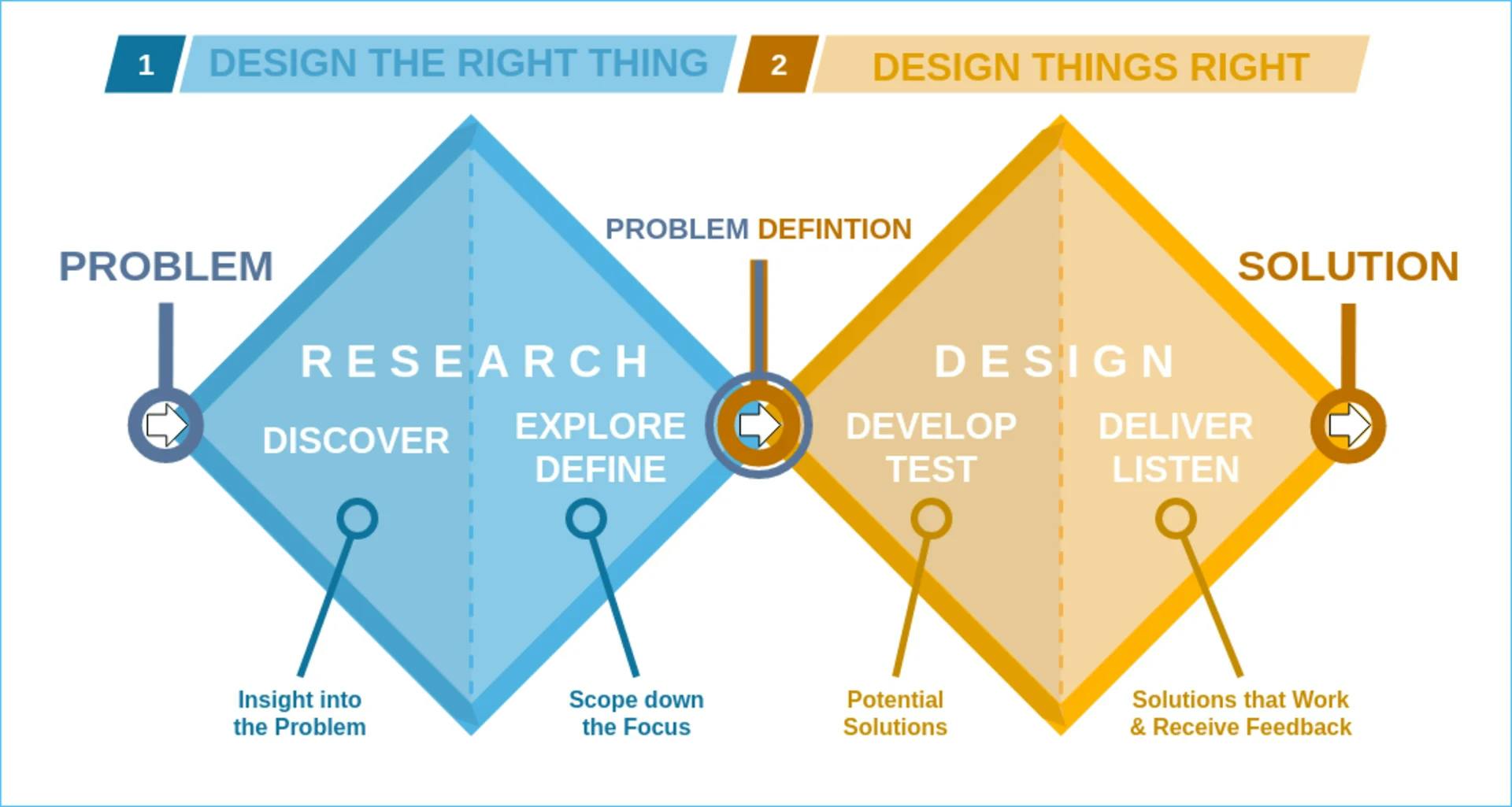
User Reseach
In order to collect information on potential Revery users, we used 2 types of levers:
- Quantitative research, in order to obtain a large amount of data, via a Typeform form, shared on LinkedIn:
- Qualitative research, to gather finer and more detailed information, by interviewing Revery customers and potential users, sensitive to our problem.
We received 135 entries on the Typeform and interviewed 5 people.
Personas and problematic's definition
Thanks to our research and the insights generated, we were able to develop specific personas (presented in a simplified way in this case study), with issues specific to each.
A need also emerged during our research: users are aware that they are able to improve their sleep with simple gestures but do not always have the keys in hand to do so.
This is how we defined the problem of our project in order to design our solution:
🌟 How to guide Revery users to make the right choice of products to improve their sleep?
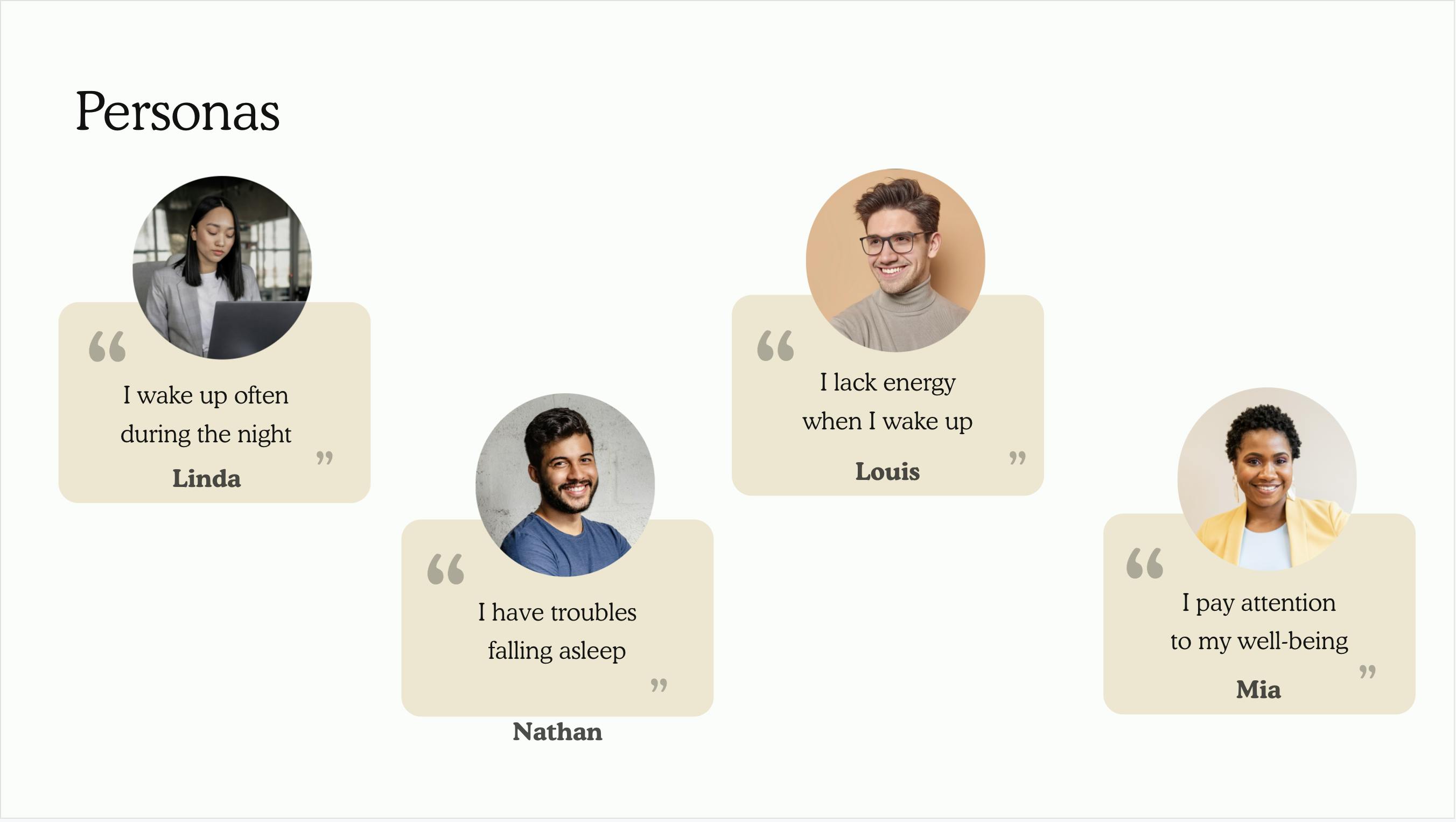
Design of a personalised experience
We started by creating a user flow, in order to map the experience that Revery could offer its customers.
As part of this project, we focused on one part of the experience (boxed in red): the personalization quiz.
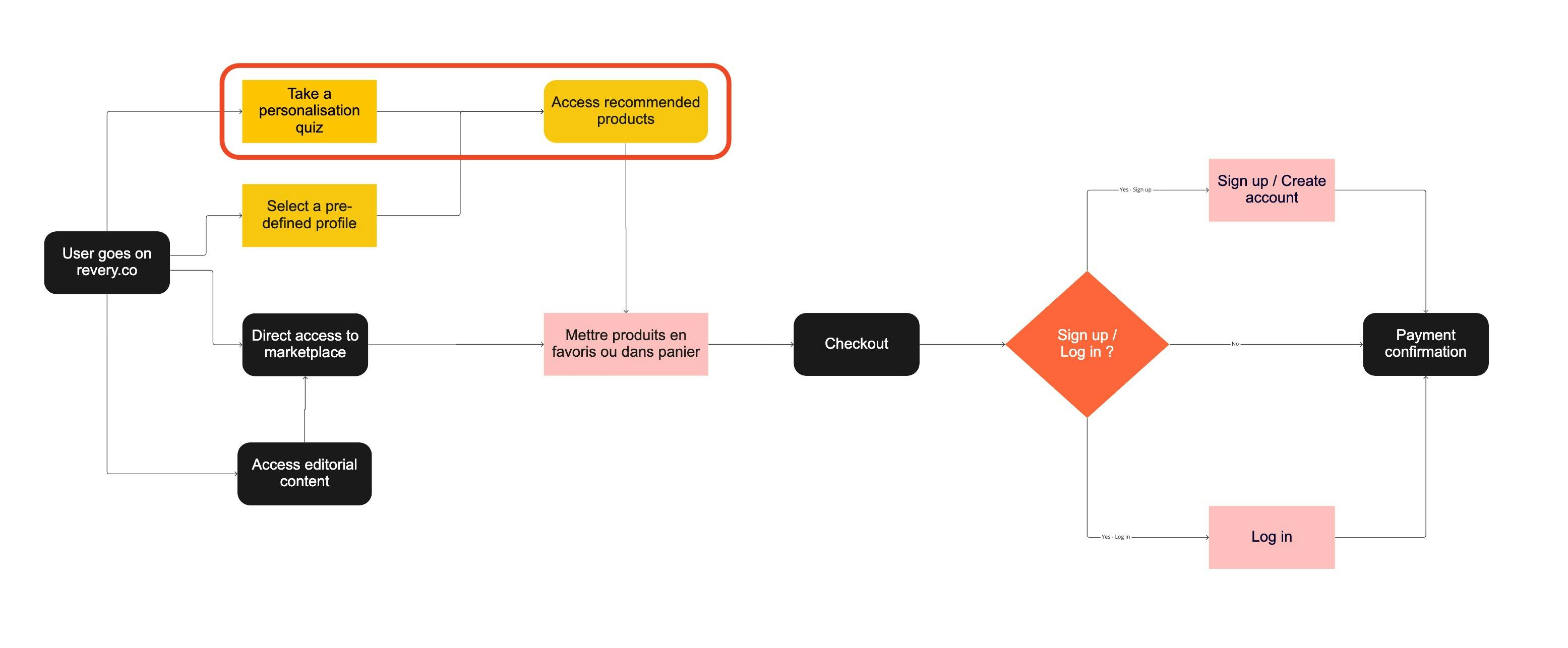
Why a personalisation quiz?
Based on the principle that our users needed to be guided and advised in their choice of products, we decided to offer a simple experience allowing them to access a selection of adapted products.
The quiz offers a personalized, simplified, and memorable shopping experience.
It is based, quite simply, on a system of questions concerning users' sleep habits, needs, and objectives, in order to offer the right products.
Our designers have therefore designed a high-fidelity prototype, in order to create a more immersive and closer-to-reality experience for our users for the test phase.
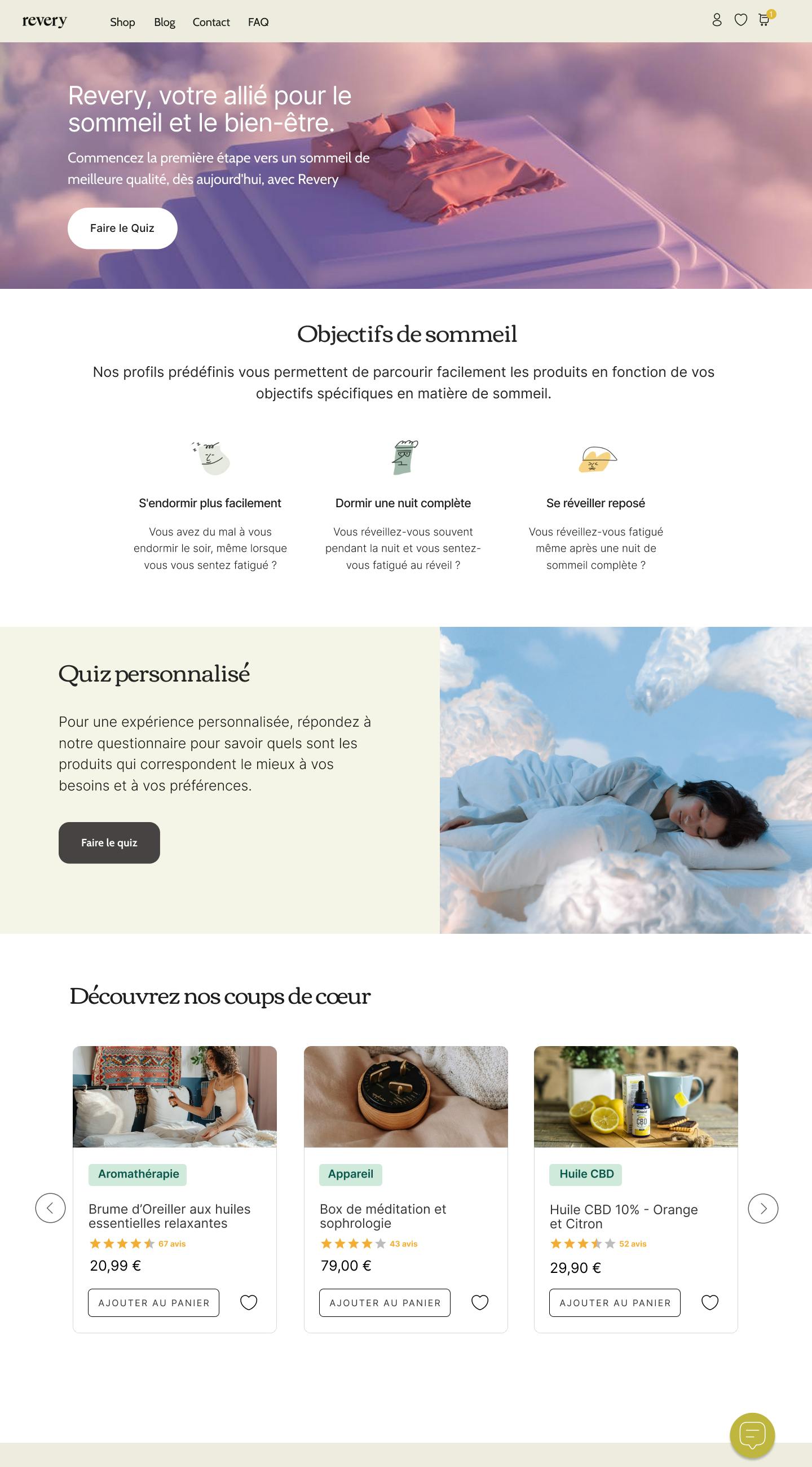
One of the personalised quiz screen.
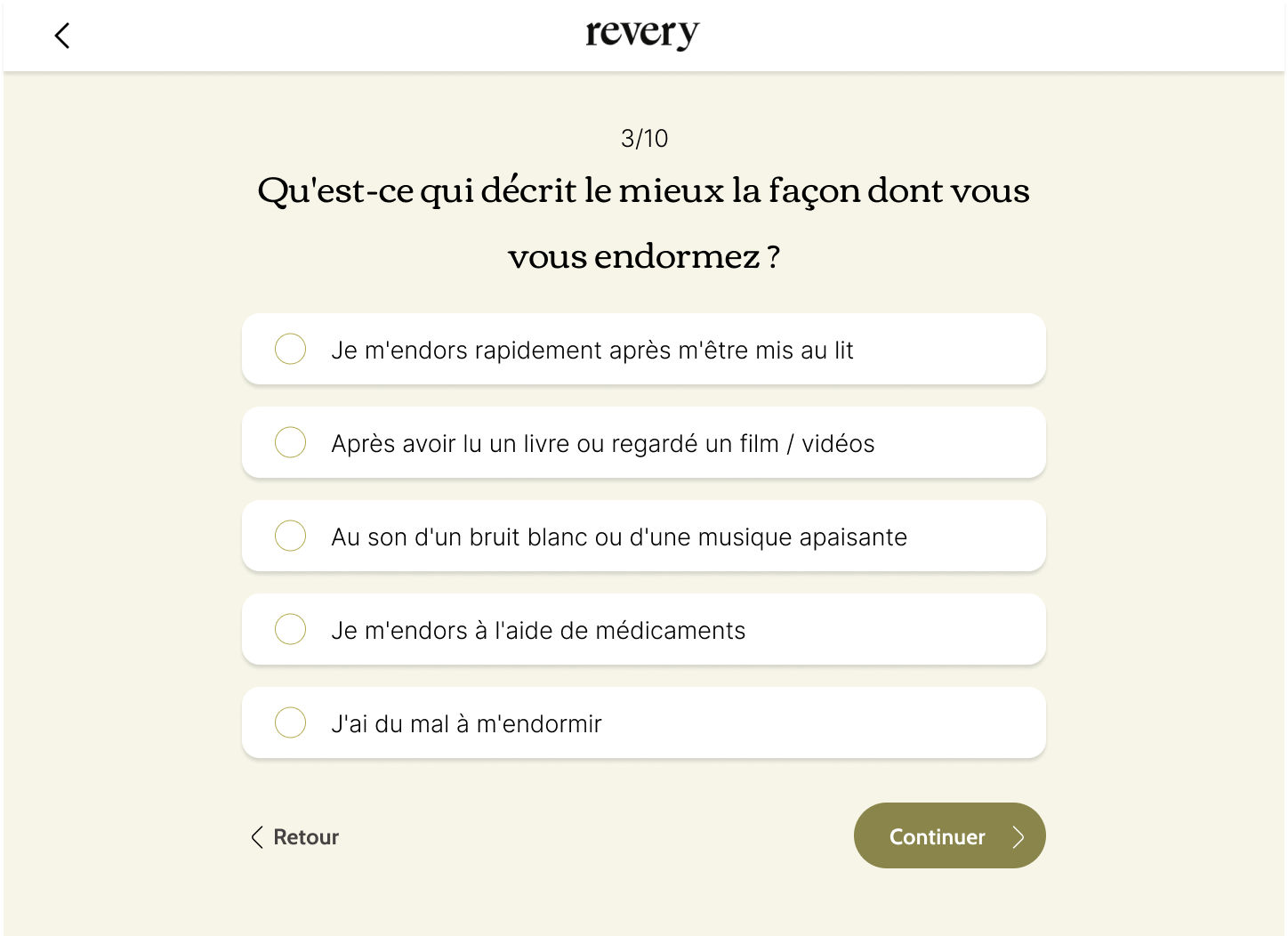
The results page, showcasing recommended products.
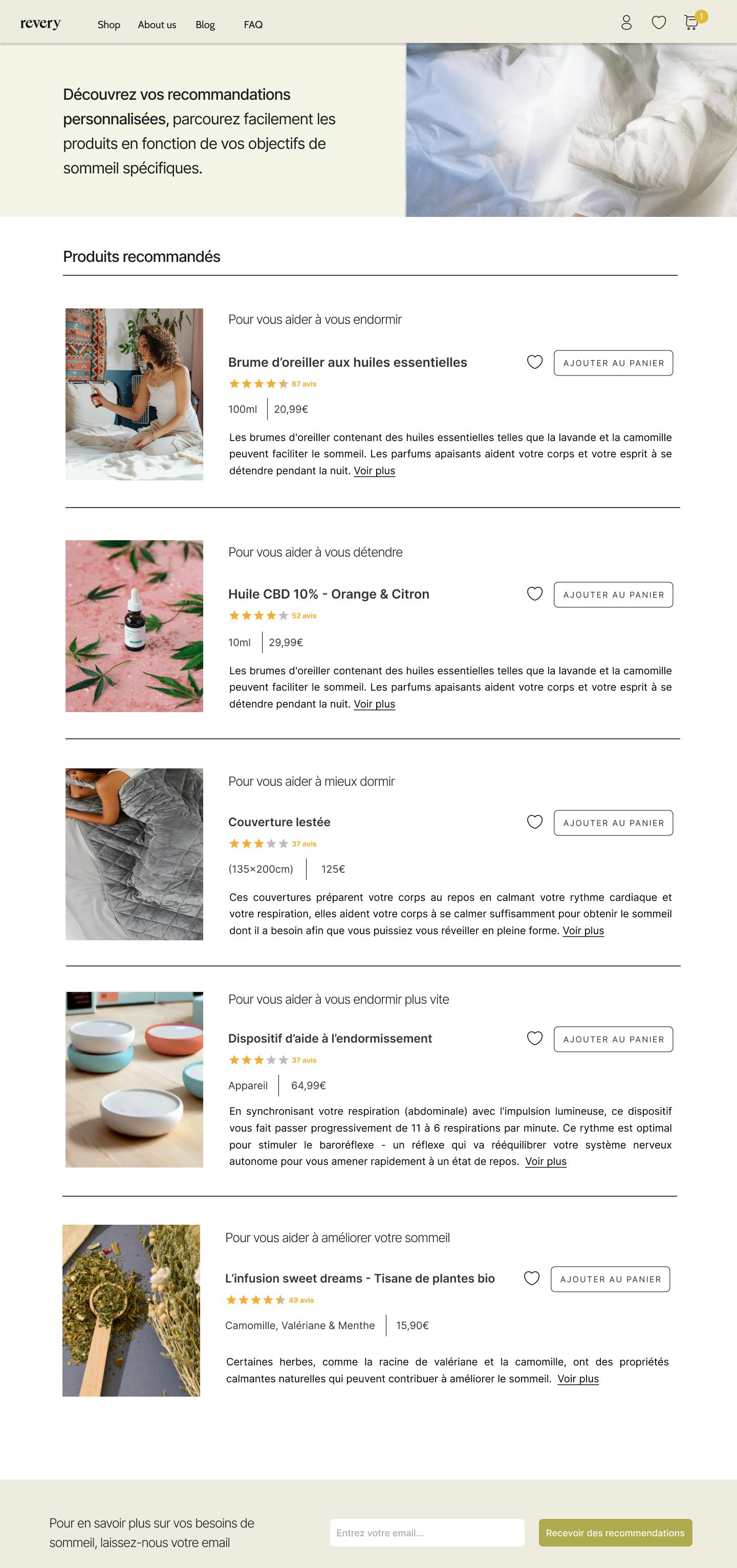
Results
User tests conducted in part at the Gobelins ergo-design lab enabled us to validate the added value of the personalisation quiz within Revery's future user experience and to identify some additional improvements we could provide to our concept to make it even better.
Throughout the project, we have positioned ourselves as a real consulting team with our sponsor and are very proud to have participated in the transformation of their concept.
We can't wait to see the results developed!